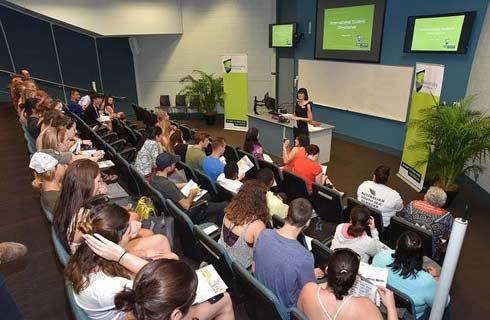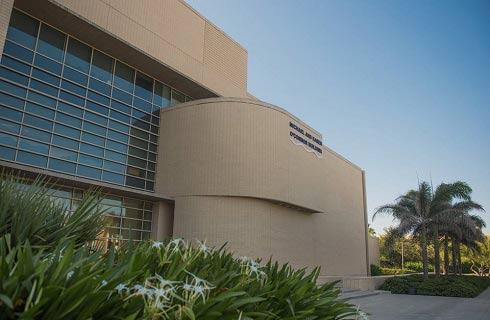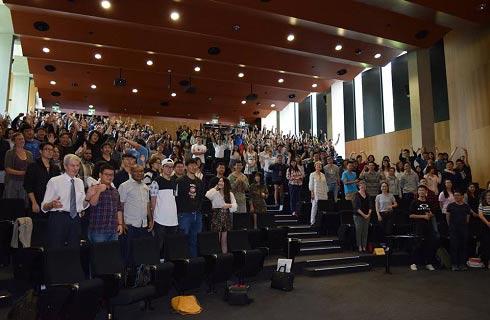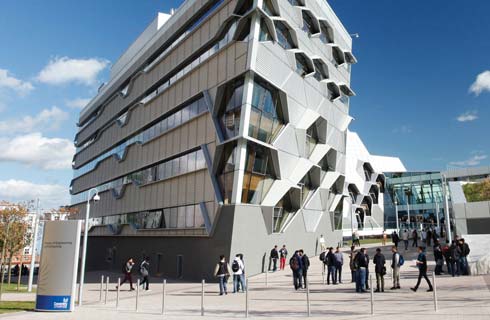- IDP China>
- 课程库>
- 工程与技术>
- 工程学及其相关技术>
- 工艺与资源工程>
- Master of Professional Engineering - Chemical engineering (Engineering design)
Master of Professional Engineering - Chemical engineering (Engineering design)

学历文凭
Masters Degree (Coursework)

专业院系
Department of Chemical Engineering

开学时间

课程时长

课程学费

国际学生入学条件
Duration: 3 years full-time (144 points to complete)
An Australian bachelor degree (or equivalent) with at least high credit (65%) average and prior studies in mathematics (inc. Linear Algebra and Calculus), physics and/or chemistry as required by the specialisation chosen for admission:
- Chemical engineering: prior studies in mathematics (12 credit point Monash equivalent) and chemistry (12 credit point Monash equivalent).
- Civil engineering: prior studies in mathematics (12 credit point Monash equivalent) and physics (12 credit point Monash equivalent).
- Electrical engineering: prior studies in mathematics (12 credit point Monash equivalent) and physics (12 credit point Monash equivalent).
- Materials engineering: prior studies in mathematics (12 credit point Monash equivalent) plus physics (12 credit point Monash equivalent) or chemistry (12 credit point Monash equivalent).
- Mechanical engineering: prior studies in mathematics (12 credit point Monash equivalent) and physics (12 credit point Monash equivalent).
IDP—雅思考试联合主办方

雅思考试总分
- 雅思总分:
- 托福网考总分:
- 托福笔试总分:
- 其他语言考试:
CRICOS代码: 102717C
申请截止日期: 请与IDP联系 以获取详细信息。
课程简介
相关申请
 预科
预科 奖学金
奖学金 实习机会
实习机会 在校学习
在校学习 跨境学习
跨境学习 校园授课-线上开始
校园授课-线上开始 在线/远程学习
在线/远程学习
开学时间&学费
学费信息仅供参考,请与IDP联系以获取详细信息
| 开学时间 | 时长 | 学费 | 地点 |
|---|
学校排名

世界排名84
数据源:
泰晤士高等教育世界大学排名
关于蒙纳士大学

蒙纳士大学(Monash University),世界百强名校,是澳洲八大名校(Group of Eight)的盟校成员。于1958年由国会建立,是维多利亚州的第二所古老的大学,为纪念杰出的澳大利亚军人、学者兼工程师约翰·蒙纳士爵士,大学以其姓氏命名。蒙纳士大学以其卓越的教学和精湛的科研而在国际拥有声誉,蒙纳士是澳大利亚规模最大的国立大学之一,其综合实力在各大学中名列前茅,也是著名的密集研究型大学,被评为澳大利亚五星级大学。并在四大洲多个国家设有校区和科研中心,与全球科研领域与高校紧密合作,在北美,欧洲,英国,亚洲以及非洲建立了合作关系并结为联盟。蒙纳士在墨尔本有七个校区,每个校区皆各具特色。蒙纳士大学拥有包括澳大利亚肝细胞中心等100个研究中心和17个合作研究所,是澳洲主要的国内研究机构。
本校相关课程

健康科学学士(荣誉学位)
学历文凭
Bachelor Degree with Honours
开学日期
课程费用总额


建筑学硕士
学历文凭
Masters Degree (Coursework)
开学日期
课程费用总额


美术学士(荣誉学位)
学历文凭
Bachelor Degree with Honours
开学日期
课程费用总额


商科研究生证书
学历文凭
Graduate Certificate
开学日期
课程费用总额


专业会计硕士和商法硕士
学历文凭
Masters Degree (Coursework)
开学日期
课程费用总额


外科硕士
学历文凭
Masters Degree (Research)
开学日期
课程费用总额

其他相关课程

工程学硕士(化学工程)
 伊迪斯科文大学
伊迪斯科文大学学历文凭
Masters Degree (Coursework)
开学日期
课程费用总额


MSc Oil and Gas Engineering with Sandwich Year
 中央兰开夏大学
中央兰开夏大学学历文凭
Masters Degree (Taught)
开学日期
课程费用总额


能源工程(荣誉)工程学士学位
 谢菲尔德大学
谢菲尔德大学泰晤士高等教育世界大学排名:111
学历文凭
Undergraduate Masters
开学日期
课程费用总额


可持续能源硕士(管理)
 昆士兰大学
昆士兰大学泰晤士高等教育世界大学排名:80
学历文凭
Masters Degree (Coursework)
开学日期
课程费用总额


MSc by Research Biomaterials
 曼彻斯特大学
曼彻斯特大学泰晤士高等教育世界大学排名:56
学历文凭
Masters Degree (Research)
开学日期
课程费用总额


Master of Professional Engineering - Materials engineering
 蒙纳士大学
蒙纳士大学泰晤士高等教育世界大学排名:58
学历文凭
Masters Degree (Coursework)
开学日期
课程费用总额










